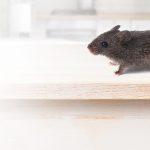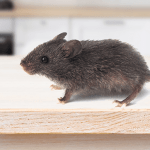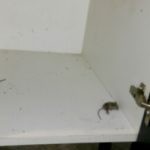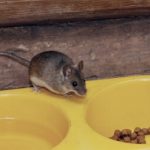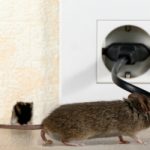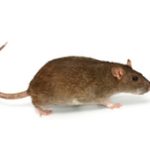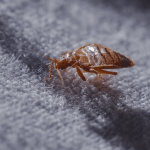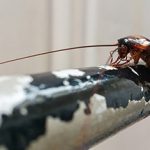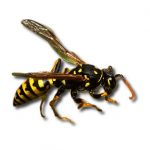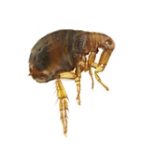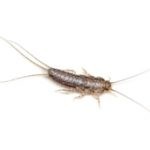How to Get Rid of Mice in Your House
Having a mouse infestation is one of the most annoying and unpleasant things we can experience and it’s very important to know how to take care of it properly and how to prevent it from happening again.
The first thing you have to do is to confirm whether you have an infestation. The most important signs you have to look for are mice droppings, urine puddles, scratches and scratching noises, grease markings, strong smell, seeing a mouse and the most obvious one – finding a nest.
The second, and more important, is to get rid of them.
How to Prepare to Get Rid of Mice
Here are the key steps to follow when preparing to get rid of the nasty rodents:
Throw away contaminated food
- Make sure that all your food is sealed in metal, plastic or glass containers. They are difficult to penetrate and will guard your food properly against the mice.
- If you have a box of whatever, that is only half-used, make sure to transfer the rest to a container and throw the box out of the house. The cardboard is perfect for nesting materials and they will not only steal the insides of it but also bite off whatever they need.
- Don’t leave your bread or bowl of fruit out on the counter even for a day. Put as much as you can in your fridge and the bread in a metal container, if possible.
- Make sure to clean your cabinets, pantries and surfaces every day from crumbs, food residue and spilt liquids.
Seal entryways
- Go around your property and seal any cracks and holes you find to prevent mice from entering your property. Steel wool is the cheapest and easiest option.
- Always keep your windows closed or at least monitored. Of course, you will need some fresh air from time to time, but try to be around when the windows are open, so you can spot quickly if a mouse is trying to get in.
Clean up
- Throw away any old boxes, bags, books and any clothing material that you have and don’t use. If you have items that you need, store it securely so that they would not be easy for the mice to reach.
- Go over all the areas where you found droppings, urine puddles, signs of a nest, etc. and sanitise them thoroughly.
- Mice chew not only cardboard but plastic and wood as well, so make sure that you do not store your personal belongings in boxes made from these materials.
- Have a good general clean of your property, especially in places you don’t clean very often like attics, lofts or basements.
Tip: Keep your garden tidy, so there are no hiding places for mice.
Cut off their food supply
- Even if it doesn’t look like mouse food to you – it is mouse food. They eat almost everything, so regularly clean any food remnants from the floors, counters and other surfaces.
- If you have fruit trees that drop fruits, you have to rake them every now and again. Mice will get out of the house to search for food if there isn’t any inside.
- Keep your outdoor and indoor rubbish with a tight lid and always check if the bin has an entry point of some sort.
- Clean up your pet’s food after they have eaten. Don’t leave it out during the day or overnight.
- If you have a bird’s feeder, clean up the seeds under it every couple of days.
How to Get Rid of Mice
Once you complete all the steps enlisted above, you can proceed with the pest removal process. The most effective way to get rid of mice is to do it fast. If you don’t, there will be a lot more damage to your property and a lot more mice to get rid of. It’s also best not to let them reproduce and after that kill them off, but to do it in the beginning when they are still in small numbers. Here are some ways to get rid of a mouse infestation.
Humane Traps
Many people prefer to get rid of mice in a humane way by using live traps. They are pretty easy to set and maybe, the only drawback is that you will catch only one mouse at a time. This makes it ineffective when it comes to large infestations.
The trap is usually a cage with bait inside that will attract the mouse. And the moment the rodent gets inside – the door will close behind, trapping the mouse for good. It’s really important to check those traps every couple of hours because it’s not ideal to leave the animal there for a long time.
Now that you have your mouse, it’s time to let it go.
- First, you put on rubber gloves.
- Go and check how your mouse is doing.
- Place the whole trap in a box or a bucket and transport it at least 3 miles away from your home.
- Release the mouse by putting the cage away from you and opening it with a long stick or a log with your gloves still on.
- Drive away.
Read more: How to keep mice out of your car.
Glue Traps
Glue traps are another way you can catch mice without killing them. The device is a board filled with glue and when the mouse walks on it, it sticks and cannot escape. Young mice are more likely to fall into this trap as they are still learning to avoid them. The adult ones are way more cautious and will probably go around it. With that kind of trap, you have to be extremely careful not to let anything fall and get stuck on the surface. And if you have pets, protect them at all times.
- Again, it’s recommended that you free the mouse as soon as you see it in the trap.
- Drive at least 3 miles away from your home.
- When you arrive at your chosen location, catch the glue board with one hand, again after putting the rubber gloves on, first. Pour some vegetable oil, which will help weaken the glue and the mouse will be able to run free.
- After you are done, throw the trap, do not use it again.
Poisonous Bait Stations
Using poison bait stations requires extreme caution. The trap itself is usually a plastic box that is designed to hold poison. Below you can find some general tips when placing such a trap.
- When you are setting up the trap, always use gloves.
- Put the poison only in the designated sections.
- Place the traps only in hidden and enclosed spaces, where mice are more likely to nest.
- Never put traps outside because they could harm a stray or a wild animal.
- Store any excess poison in a dark and dry place, far away from children and pets.
Natural mice control
Although it may sound like the perfect, humane, safe and beautifully smelling decision, natural mice control rarely works. Mice are really smart creatures and they learn from their environment all the time.
Some of the supposed repellents include mothballs, peppermint and ultrasound waves.
- Mothballs may work perfectly for the moths and other small insects but they don’t bother the mice at all. The insect repellent contains a small amount of naphthalene, which could be dangerous but in larger amounts. Mothballs, in general, are just ignored by the mice.
- Peppermint oil smells amazing and it’s completely useless. There is a myth that it works because in large amounts, it’s very potent and since mice have a very developed sense of smell, then, it must be bad for them. Unfortunately, mice often live in the sewer, around rubbish and near their own faeces, so a little bit of peppermint oil is nothing for them. Most likely, they won’t even smell it as the oil scent rises up in the air and the mice are always low, close to the walls.
- Ultrasound waves sound very intriguing and they are mainly used by people who prefer the DIY version of everything and always try to do things on their own. As we mentioned earlier, mice are highly adaptable and smart creatures. Once they have found a home with food and shelter, they wouldn’t give it up because of some sound waves that slightly irritate their ears. They’ll find a way to go around them and still reach the food.
Professional mice control
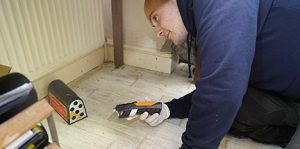
Calling a professional mouse exterminator to get rid of mice in your house is the safest way to go. These are trained people who have been in all kinds of houses and have dealt with all levels of infestation. That’s their job and they do it every day. They would know how to quickly locate the nest, the best and safest way to get rid of the mice and will give you all the instructions you need to prevent such situations in the future. Whenever you’re in doubt, just call a professional and you will ensure your home and your family’s safety.
How to know when the mice are gone
The best way to be sure that you have caught all the mice is to watch out for new droppings, scratches and urine puddles. Clean up regularly so if there is anything new you will notice it right away. When the signs stop, then you can be sure that the mice are gone as well.
How to Prevent a Mouse Infestation
After you finally got rid of the mice, it’s really important to know how to prevent a similar infestation in the future. Here are the most important steps you need to follow.
- Take out your rubbish regularly and block holes that let light in. Rubbish and light attract these pests.
- Keep your place clear of junk and corners clean. It’s not just rubbish, mice are attracted to clutter in general. Bottles, newspapers, old furniture, clothing – anything that would give the mouse a place to hide.
- Secure the perimeter. Cracks in pipes, holes in the foundation, and spaces under doors, are all breach points, that mice can use to enter through.
- Secure your food in airtight containers so that mice have no food supply to survive. Remember: this includes any pet food, as well!
- Get a cat. Perhaps it’s a cliché, but truths become cliché for a reason!
- Clean the garden. Mice thrive in piles of debris and untrimmed hedges. If you keep it tidy, rodents will have fewer places to hide.
- Plant strong-smelling plants like garlic and mint as the odour is too much for mice to bear.
- Keep mulching to a minimum as mice love these kinds of materials for nesting.
- Attract birdlife. This may sound like a crazy idea but it’s a fact that a family of predatory birds such, as barn owls, can eat up to fifteen mice a night. Not only that, but it’s a rodent’s natural instinct to avoid their bird enemies and the places they inhabit.
So, these are the best ways to get rid of mice, dispose of them afterwards and prevent them from entering your home again. If you are confident enough, don’t hesitate to try them and if you have any doubts about their effectiveness, just call a professional and let him do the job for you.
Want an expert help with mice?
Consider that we give information on possible ways to get rid of mice. However, we cannot affirm that all of the above approaches will work for you.



